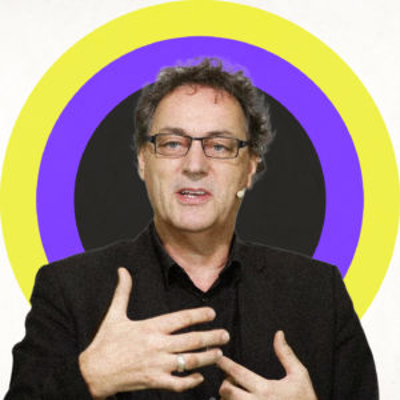We are today in what Gerd calls the leap age. Science fiction is quickly becoming science fact, and it is ever more crucial that professionals understand the future. However, the future isn’t about tomorrow; the future is here now.
This rapid change is being driven by three revolutions:
1. The first one is the digital revolution.
2. The second one is the sustainability revolution.
3. The third is the purpose revolution. When we think about the purpose revolution, we are asking what the business model’s purpose is. How do we go beyond profit and growth and venture into sustainable capitalism and renewable capitalism?
According to Gerd, the digital revolution can be further broken down into four exponentials, which are already happening in our world today. The first is information technology. Examples of this could be cloud computing and blockchain. The second is biotechnology, which today could be 3D printing, vertical farming, cultured meat, and sustainable jet fuel. The third is energy and climate technology. It is estimated that we could be powering everything through renewable energy in the next ten years. The fourth is AI technology. All four of these exponentials are coming together as millennials, specifically women, champion these revolutions.
So, what does this all mean for you in your role and company? Our clients want to know that we understand the future of now. On top of this, there is today massive knowledge pressure on us all. We need to know, we should know, and everywhere we turn, ethics, policy and politics surround our use of technology. We’re in a perma-change or perma-vuca world. The new normal is that things will constantly change.
One of the big changes we see right now pertains to AI. AI can be a powerful tool to help users find things. In legal and recruitment, important fact-checking, comparing information sources, and creating charts can all be done by AI. However, Gerd encourages us to question how much AI can actually do and what it could be capable of.
“AI are computer systems that turn information and data into knowledge” - Demis Hassabis, Deep Mind
Human intelligence is well-researched. However, we don’t really have a strong understanding of what it actually is. We know that there are four domains of human intelligence, five of which are social, intellectual, emotional, kinaesthetic and logical. Machines only have logical intelligence. They are removed from all the other domains we humans draw on, meaning that they can only see a limited view of the world. Gerd estimates that machines really can only see between 3-5% of what we see. The gap in generative AI between what is interesting and good enough and what is really good enough is still enormous.
Despite this, we still see headlines and talk of our jobs becoming automated. The global average shows that roughly 18% of work can be automated. This figure is much higher in the US and Brazil, but what does automated actually mean? Our tasks, the commodity work, will be automated, but not our work, our jobs, and our livelihoods. What this looks like is a dramatic increase in productivity gains for knowledge workers, which could be either an excellent thing or a terrible thing. We could end up with much more free time and, at the same time, take home higher salaries. Conversely, we could do 5x the work, and as a result, all of our colleagues get fired. For Gerd, it isn’t all doom and gloom; he views the AI and digital revolution with optimism.
How do you position yourself well to thrive in an AI world? Gerd invites us to take on a future mindset. In the past, we used to deal a lot with intellectual knowledge. However, this is fast becoming the domain of the machine. There is no way to compete with computers having the ability to draw on lots and lots of data. Still, humans do have a competitive edge. There are human-only traits & skills: deeper knowledge, wisdom, and purpose. The future mindset is about dealing less with data and information and much more with wisdom, tacit knowledge, and purpose.
With this all in mind, what can we expect from the future? Gerd tells us that the future belongs to optimists, not people who believe nothing can be done. As optimists, we have to keep a few things in mind. Machines will get smarter, but we must protect what makes us human, including mistakes. Efficiency is really for robots. Humans are much more malleable than that; we make mistakes, create, and invent. A machine should have competence but no consciousness, and if we don’t understand what a machine does and how it works, we should not adopt it.


